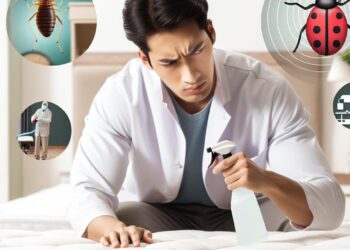Navigating the Legal Landscape of Pest Control: Regulations and Liabilities
Legal Pest control is a critical aspect of maintaining sanitary living and working conditions. However, the use of pesticides and other control methods can come with legal implications that must be carefully considered. In this article, we will explore the legal considerations of pest control, including regulations and liabilities that pest control professionals should be aware of.
Regulations:
The use of pesticides is regulated in the UK by the Health and Safety Executive (HSE) and the Department for Environment, Food and Rural Affairs (DEFRA). Pest controllers must comply with strict regulations governing the use, storage, and disposal of pesticides. Failure to do so can result in legal action and fines. To comply with regulations, pest control professionals must:
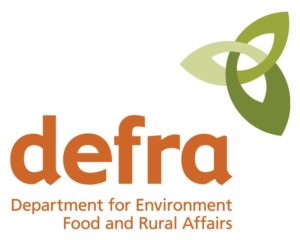
- Hold a valid pesticide application certificate: A certificate is required to purchase and apply professional strength pesticides. Additionally, pest controllers must adhere to label instructions and use the appropriate protective equipment.
- Keep accurate records: Pest controllers must maintain detailed records of all pesticides used, including the type, amount, and location of application.
- Dispose of pesticides safely: Pesticides must be disposed of in accordance with regulations, which may require them to be stored in secure containers and taken to licensed waste facilities for disposal.
Liabilities:
Pest control professionals can face legal liabilities if their actions cause harm to people or property. For example, if a pesticide treatment causes harm to a customer’s pet or damages their property, the pest controller may be held liable for the costs of repair or compensation. To minimize legal liabilities, pest controllers should:
- Carry adequate insurance: Pest control companies should carry public liability insurance to protect against claims for damages or injuries caused by their services.
- Provide accurate information: Pest controllers must provide accurate information to customers regarding the risks and benefits of pest control services. Failure to do so can result in claims of negligence.
- Follow best practices: Pest controllers should follow industry best practices and adhere to regulations to minimize the risk of harm to people or property.
Enforcement:
The HSE and DEFRA are responsible for enforcing regulations related to pest control. This includes carrying out inspections and investigations to ensure compliance. Pest control professionals should be aware that enforcement action can be taken against them if they fail to comply with regulations. This can include fines, suspension or revocation of their pesticide application certificate, and even criminal charges in severe cases.
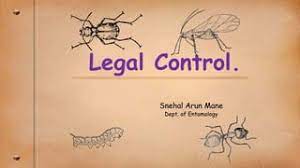
In addition to government regulations, pest control professionals must also comply with local bylaws and regulations. For example, some local councils may have specific rules regarding the use of pesticides in public areas such as parks and playgrounds. Pest control professionals should familiarize themselves with these regulations and ensure that they comply with them.
Emerging Trends:
As concerns about the environment and public health continue to grow, there is increasing pressure on pest control professionals to use eco-friendly and non-toxic methods of pest control. This includes the use of traps, baits, and other methods that do not rely on pesticides. Pest control professionals should stay up-to-date on emerging trends in the industry and be prepared to adapt their practices to meet changing customer preferences and regulatory requirements.
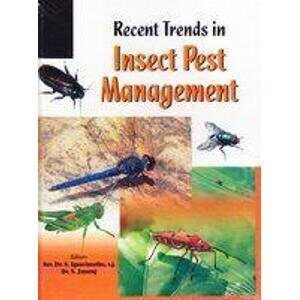
Pest control professionals must be aware of the legal considerations of their work, including regulations and liabilities. By complying with regulations, carrying adequate insurance, and providing accurate information to customers, pest control professionals can protect themselves from legal action and provide safe and effective services to their customers. As the industry continues to evolve, pest control professionals must stay up-to-date on emerging trends and be prepared to adapt their practices to meet changing regulatory requirements and customer preferences.
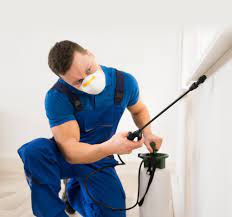
In recent years, there has been a growing concern about the impact of pesticides on the environment and human health. This has led to increased scrutiny of the pest control industry and a push towards the use of eco-friendly and non-toxic methods of pest control. Pest control professionals must be aware of these emerging trends and be prepared to adapt their practices accordingly.
One approach to eco-friendly pest control is to use Integrated Pest Management (IPM) techniques. IPM is a holistic approach to pest control that involves using a combination of methods to manage pests. This includes preventative measures such as sealing entry points and removing food sources, as well as non-toxic control methods such as traps and baits. Pesticides are only used as a last resort, and even then, only the most targeted and least toxic options are used.

Another trend in the pest control industry is the use of digital tools to improve efficiency and accuracy. For example, some pest control companies use digital mapping software to track the location and type of pests, making it easier to identify trends and patterns. This can help pest control professionals to develop more effective control strategies and reduce the need for pesticide use.
In addition to these emerging trends, pest control professionals must also be aware of the potential for new regulations and legal requirements in the future. For example, the UK government has recently proposed new regulations governing the use of rodenticides to protect wildlife. Pest control professionals must stay up-to-date on these developments and be prepared to adapt their practices to meet new requirements.
Overall, the pest control industry is constantly evolving, and pest control professionals must stay informed and adaptable to remain effective and compliant. By staying up-to-date on emerging trends, complying with regulations, and providing safe and effective services to their customers, pest control professionals can continue to play a vital role in maintaining healthy and sanitary living and working conditions.
It is also important for pest control companies to be transparent about their services and pricing. Customers should be provided with clear information about the services being provided, the costs involved, and any potential risks associated with the use of pesticides.
In addition to legal requirements, pest control companies should also consider best practice guidelines, such as those provided by the British Pest Control Association (BPCA). These guidelines cover a wide range of topics, including risk assessment, pest identification, and non-chemical control methods. By adhering to best practice guidelines, pest control companies can ensure that they are providing a high-quality service that meets the needs of their customers.
Conclusion:
Pest control professionals must navigate a complex legal landscape that governs the use of pesticides and the liabilities associated with their services. By complying with regulations, carrying adequate insurance, and providing accurate information to customers, pest control professionals can protect themselves from legal action and provide safe and effective services to their customers.



